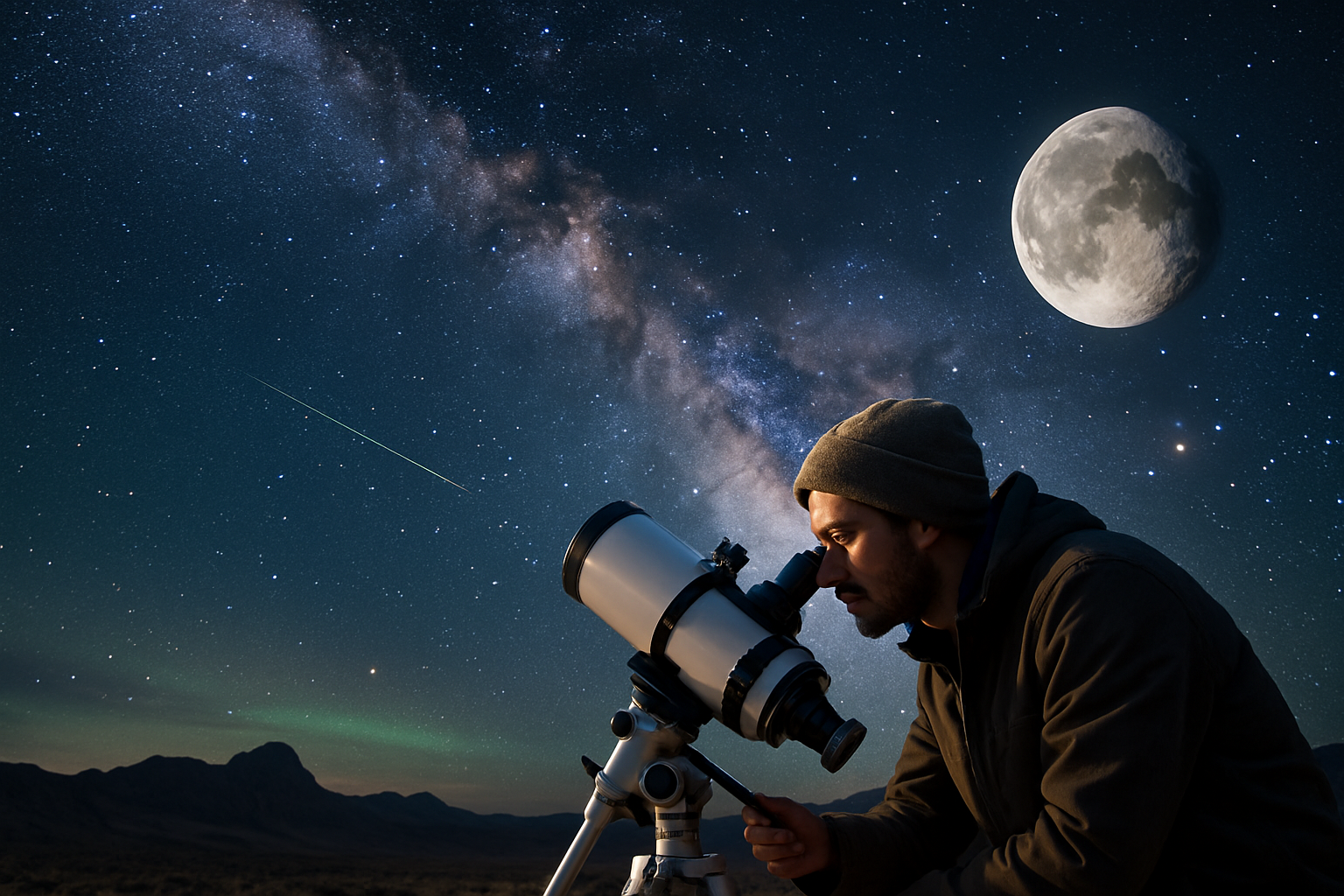Astro-Tourism: Exploring the Universe from Earth's Dark Skies
Stargazing has captivated humans for millennia, but a new travel trend is taking our love for the cosmos to new heights. Astro-tourism, the practice of traveling to destinations with pristine dark skies for celestial observation, is rapidly gaining popularity among adventure seekers and astronomy enthusiasts alike. This immersive form of travel combines the wonders of the universe with the thrill of exploration, offering a unique perspective on our place in the cosmos.

This niche travel segment has seen significant growth in recent years, with dedicated dark sky preserves and astronomy-focused resorts popping up around the globe. From the Atacama Desert in Chile to the remote islands of the Maldives, destinations are capitalizing on their naturally dark skies to attract a new breed of traveler.
Dark Sky Destinations: Where to Go
While many remote areas offer excellent stargazing opportunities, some destinations stand out for their exceptional dark sky conditions and supporting infrastructure:
NamibRand Nature Reserve, Namibia
Located in the heart of the Namib Desert, NamibRand Nature Reserve is one of Africa’s largest private nature reserves and a certified International Dark Sky Reserve. The reserve’s vast expanse of undisturbed wilderness provides an ideal setting for stargazing, with minimal light pollution and clear skies most of the year.
Visitors can stay at luxurious lodges that offer guided astronomy tours and professional-grade telescopes. The contrast between the stark desert landscape and the brilliant night sky creates a truly otherworldly experience.
Aoraki Mackenzie International Dark Sky Reserve, New Zealand
Covering over 4,300 square kilometers in New Zealand’s South Island, the Aoraki Mackenzie International Dark Sky Reserve is one of the largest dark sky areas in the world. The reserve includes Mount Cook National Park and the Mackenzie Basin, offering breathtaking views of the southern night sky.
The area’s commitment to preserving its dark sky status is evident in the strict lighting ordinances and the presence of the Mount John Observatory, which offers nightly stargazing tours.
Cherry Springs State Park, Pennsylvania, USA
Proving that you don’t need to travel to remote corners of the globe for exceptional stargazing, Cherry Springs State Park in Pennsylvania is renowned for its dark skies and astronomy programs. The park’s Astronomy Field provides a 360-degree view of the night sky and attracts amateur astronomers from across the country.
Regular events, such as star parties and astrophotography workshops, make this an ideal destination for those looking to deepen their astronomical knowledge.
The Impact of Astro-Tourism on Local Communities
Astro-tourism has the potential to bring significant economic benefits to remote and rural areas that may have limited tourism opportunities. By attracting visitors during nighttime hours, it can extend the tourist season and create new revenue streams for local businesses.
However, the influx of visitors to previously undisturbed areas also raises concerns about environmental impact and the preservation of dark skies. Successful astro-tourism destinations must balance the economic benefits with careful management of light pollution and visitor numbers to maintain the very qualities that make them attractive.
Beyond Stargazing: The Educational Aspect of Astro-Tourism
While the awe-inspiring views of the night sky are the primary draw for many astro-tourists, the educational potential of these experiences should not be underestimated. Many dark sky destinations offer programs that go beyond simple stargazing, providing visitors with a deeper understanding of astronomy, astrophysics, and our place in the universe.
Guided tours led by professional astronomers, planetarium shows, and hands-on workshops allow visitors to learn about celestial navigation, the life cycles of stars, and the latest discoveries in space exploration. This educational component adds depth to the travel experience and can inspire a lifelong interest in astronomy.
The Future of Astro-Tourism
As light pollution continues to increase globally, the value of dark sky destinations is likely to grow. This presents both challenges and opportunities for the travel industry. On one hand, there is a risk that increased tourism could threaten the very darkness that attracts visitors. On the other, astro-tourism could serve as a powerful tool for conservation, raising awareness about the importance of dark skies and driving efforts to reduce light pollution.
Technological advancements are also shaping the future of astro-tourism. Virtual reality experiences and high-definition live streams from remote observatories may soon allow armchair astronomers to explore the night sky from the comfort of their homes. However, these innovations are unlikely to replace the visceral experience of standing under a truly dark sky.
Celestial Travel Tips
-
Plan your visit around the lunar calendar; new moon periods offer the darkest skies
-
Invest in red-light flashlights to preserve night vision
-
Allow at least 20 minutes for your eyes to fully adjust to the darkness
-
Consider joining a guided tour for expert insights and access to high-quality equipment
-
Pack warm layers; temperatures can drop significantly at night, even in desert locations
-
Learn basic astrophotography techniques to capture your celestial experiences
As we continue to push the boundaries of space exploration, astro-tourism offers a unique way to connect with the cosmos from our own planet. By fostering a deeper appreciation for the night sky, this growing travel trend not only provides unforgettable experiences but also encourages us to preserve the natural darkness that is increasingly rare in our modern world. Whether you’re a seasoned astronomer or simply curious about the universe, astro-tourism invites you to look up and rediscover the wonders that have fascinated humanity for generations.





